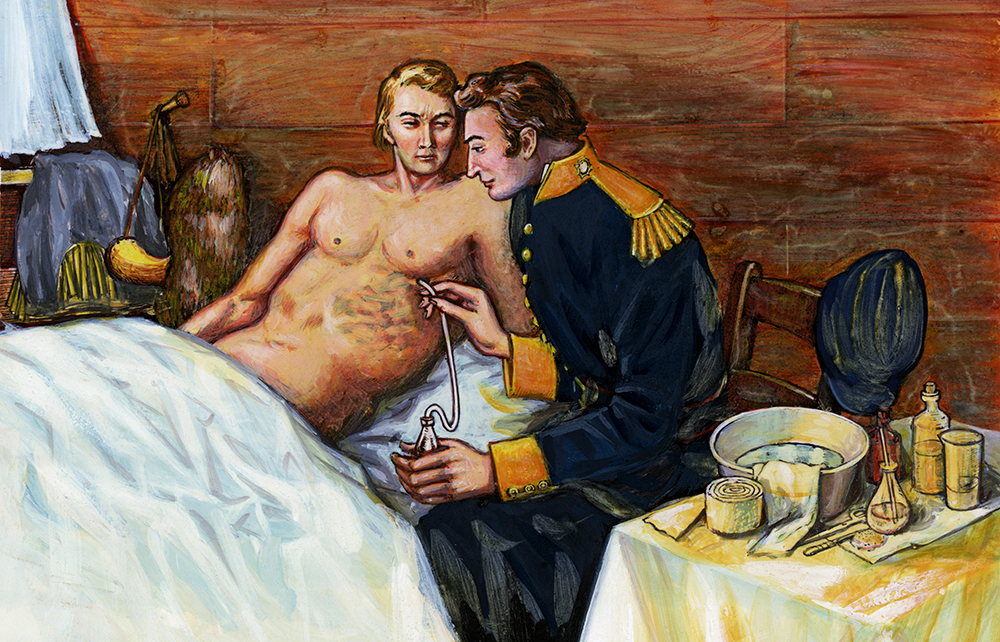At the core of Paul Carlucci’s debut novel is a protracted medical experiment conducted by one human on another. Set on the Canadian frontier of the 1830s and inspired by historical record, the book takes the strange case of Dr William Beaumont’s tests on Alexis St Martin’s digestive system and spins a marvellously dark yarn around them, exploring the uses and abuses of an innocent.
Alex is the innocent in question – the voyageur of the title. Our journey with him starts in raw boyhood, finding him living at the back of a Quebec harbour storehouse. His mother is dead, his beloved petit frère also. His grief-stricken father has sailed back to France, promising to return with enough earnings to start their dreamed-of peach orchard. Already years have passed, but Alex is a trusting soul – and didn’t his father warn him to be patient?
Of course we find ourselves doubtful. The father’s promise is so large, and the docks where he left his son so harsh. Can his word be trusted? But Alex finds comfort in his orchard-dreaming, and in the spirit of his infant brother watching over him – and his optimism is rewarded. When the harbour storeman threatens a beating, the boy is saved from his blows by a strong, kindly stranger, come to town by chance.
The frontier is brutal,
and so are its rules:
use or be used – or be lost
Serge is a fur-trapper. He befriends Alex, telling him tales of the frontier and the fortunes to be made there. Soon he spirits him away into a life of rough adventure. The good Serge takes Alex under his wing, but also into his bed – and so again we are left wondering. Is this man all he seems? Here is the genius of this novel. Each time our misgivings are called forth, chance pays a visit once more. And each time – like Alex – we hope afresh.
Fate sees him parted from Serge. It’s a bitter blow, but Alex survives it, finding new companions and new paths to beat through the wild lands. The frontier is brutal, peopled by indentured servants and indebted Indians, by freed slaves and by mercenaries. The rules are just as brutal too: use or be used – or be lost. But Alex learns tricks and tactics, growing in experience and maintaining the faith that his petit frère may somehow be guiding him. Again and again, he finds himself saved – from drowning, from knife blades, and even from a bullet that tears into his side.
When Beaumont finds him, the boy’s wound is healing, but into a fistula: Alex has a hole under his ribs leading directly to his gut. Where others see a freak, the doctor sees scientific opportunity. Already convinced that acids play a role in digestion, Beaumont persuades Alex to partner with him to prove this. ‘We will be as two men in the snow.’

The doctor provides room and payment and tutoring. But the experiments are arduous, and Beaumont’s fingers invasive. Alex knows enough now to recognise the fine line between saviour and abuser. When he buys a bag of peach stones, rather than trusting them to chance, he stuffs the largest into his fistula, hiding it deep inside himself. It is in this state that Alex happens upon an innocent, just like him, and the question of the book comes to a head. Will the used become the user? Or might he realise his orchard dreams unmarked by such compromise?
Carlucci has already won praise for his short stories. Here he shows that the longer form suits him too. Written with the scope of Annie Proulx and the verve of Peter Carey, The Voyageur is a most diverting read.







Comments